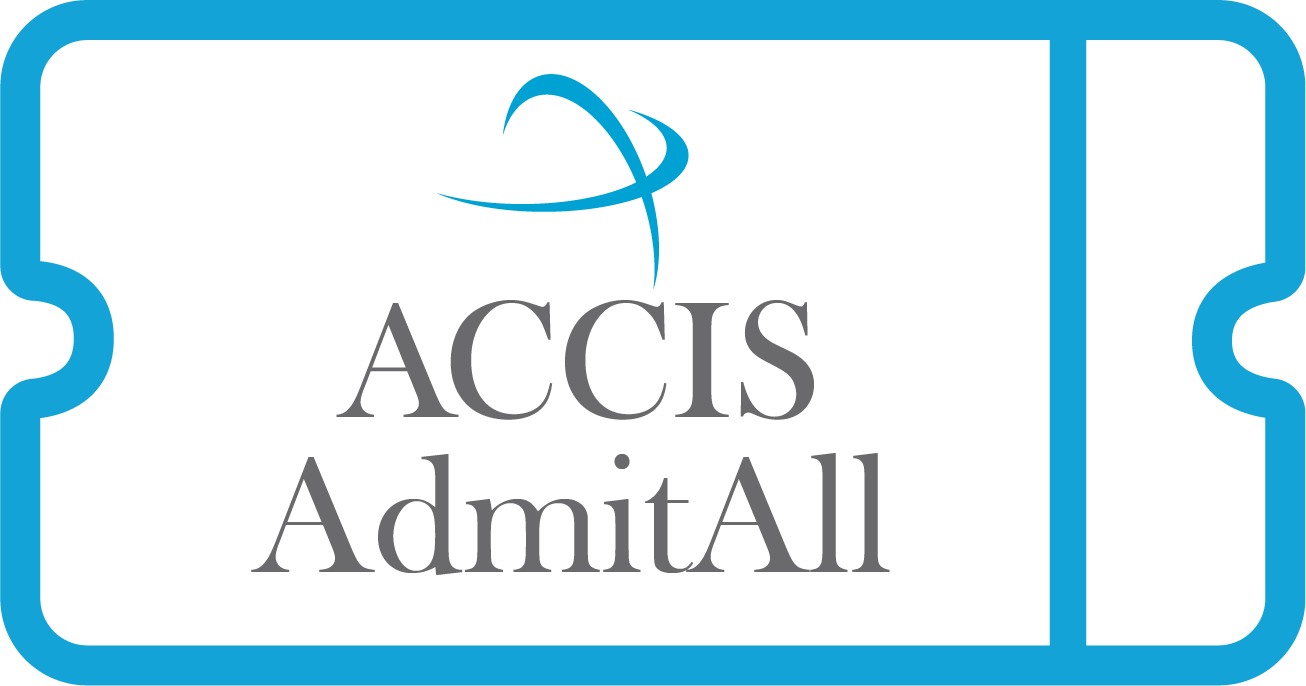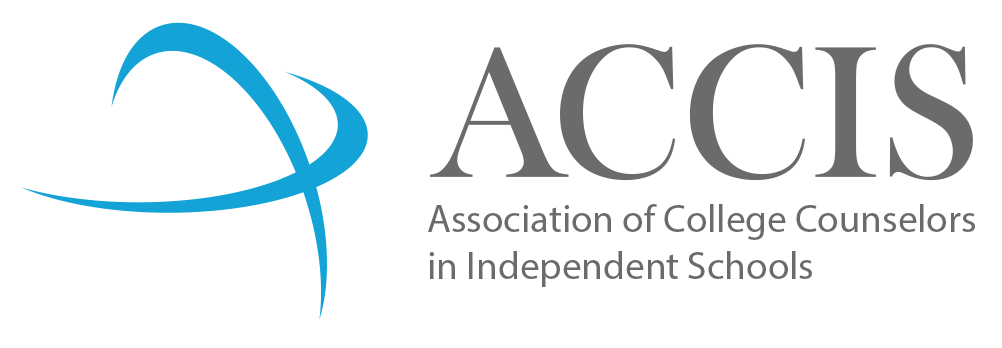Reflections on the People of Color Conference (PoCC)

Reflections on the People of Color Conference (PoCC)
A Diversity, Equity & Inclusion AdmitAll Post
As a part of the Diversity, Equity and Inclusion (DE&I) committee, DE&I blog posts endeavor to share opportunities and perspectives that will allow us to better support our students and communities, while building on our own professional growth.
“The NAIS People of Color Conference (PoCC) is the flagship of the National Association of Independent Schools' commitment to equity and justice in teaching, learning, and organizational development. The mission of the conference is to provide a safe space for leadership and professional development and networking for people of color and allies of all backgrounds in independent schools. PoCC equips educators at every level, from teachers to trustees, with knowledge, skills, and experiences to improve and enhance the interracial, interethnic, and intercultural climate in their schools, as well as the attending academic, social-emotional, and workplace performance outcomes for students and adults alike.” - NAIS People of Color Conference website
The 31st People of Color Conference was held in Nashville November 28 - December 1, 2018 alongside the 25th Student Diversity Leadership Conference (SDLC). Two ACCIS members and our Executive Director share their different perspectives in reflections following the conference. Gabrielle Dorsey, Veda Robinson and Emmi Harward, provide insight into the impact the conference had (and continues to have) on them.
Gabrielle Dorsey, Director of College Guidance, The Archer School for Girls
second-year conference attendee
From the minute I first heard about PoCC several years ago, I knew I wanted to go. It sounded like an oasis, a place of respite for professionals like me. It took a couple of years to get approval to join the trip, but I headed off to Atlanta with bells on. This first conference was, in many ways, just what everyone had promised. I reveled in the astute and frank observations of talented orators from a variety of backgrounds and industries, I attended sessions of interest – almost haphazardly like a kid in a candy store – and I luxuriated in spaces where I could commune with other people of color facing similar issues in the workplace as I was. It was rejuvenating in the sense that I found comfort and validation.
This year's experience produced mixed emotions. I came in with an agenda: I needed a specific type of nourishment this time and even while I received it, I struggled with the reality of why we need this conference in the first place, because we are trying to excel within a structure that was never built to support us. This year, as I listened to my colleagues in my affinity group share their challenging experiences and microaggressions at work, the familiarity of their stories gave me validation, but also great sadness and frustration. This time, I intentionally engaged with the white colleague in my school’s cohort group for periodic debriefs and encouraged his discomfort for the sake of growth and building allyship. I reminded him, “Now that you know, you cannot pretend you don’t know.” I strategized around which sessions to attend, thinking “What will help me challenge my institution?” for some, and “What will benefit ME?” for others. This time, I did not passively take from the plate handed to me, but actively organized the dishes in front of me.
My second PoCC gave me both more strength and more despair, more motivation and more frustration, but ultimately freed me from the idea that I had to operate within any parameters for success other than those I set for myself. What I feel I brought back, even as a newer participant, was a better capacity to support my students, more vocabulary to engage with my colleagues, and stronger tools to challenge oppressive systems. And I shall.
Emmi Harward, Executive Director, ACCIS
first-year conference attendee
In my 15+ years in independent schools, I never attended PoCC. Early on, it was a lack of awareness but more recently, there was at least one person of color in our department who would and should go and I would, rightly, stay on campus. My motivation in attending this year was to better serve the growing number of ACCIS members who attend PoCC and to listen and learn to better support our own members of color and our diversity and inclusion efforts as an organization. While I knew I could easily rationalize that as a good reason to go, it was still selfish. The name of the conference makes the intended audience clear, and yet there I was along with about 1,300 other white people taking up significant space at a conference intended for the people of color in our schools. I was also there to talk about race as a white person, when most white people struggle to see ourselves as having a race. So I tried to remember my place and also my whiteness. I went to keynote speakers (all challenging and inspiring) and sessions for white people and tried to be fully present.
I’ve had the opportunity to learn about white identity and white privilege from students and from colleagues, many of them fellow white folks, but I’ve also relied upon people of color who do too much of the work in our schools to teach white people about unearned privilege, what inclusion means, and what it doesn’t. In a small group discussion in one of the three white affinity group meetings I attended, a division head asked a question which made it clear that he was newer to the work. And in that space, there were only the five other white people in our group to clarify the issue for him. After I responded (the short version – we may say inclusion, but too often we mean assimilation), I realized I was also mentally patting myself on the back for being farther along in the work. And then I remembered why I was really there in the first place, and tried to check myself and my privilege.
As white allies, advocates, and accomplices (Google it!), we need to listen and learn, and not rely upon people of color to do the work of educating us in diversity, equity, inclusion, and access work. There are plenty of strong resources for white people out there within a few clicks, and just as we’d ask of our students, we must do our own research before asking colleagues or friends of color to do that homework for us. As much as I loved my first PoCC and as powerful as it was, I shouldn’t return every year and most other white people shouldn’t either. Because our schools and our lives offer plenty of places where we can be comfortable, maybe we can acknowledge that this one isn’t for us, while thanking people of color for sharing it.
Veda Robinson, Dean of College Counseling, Edmund Burke School
twenty-year conference attendee
In 1992 I left college admissions to work at a boarding school in New England. I had attended a predominantly white college in Maine and worked in all white institutions, but suddenly being one of a few black faculty members in a sea of whiteness was strange. I assumed my white colleagues would be enlightened about issues of race (they were educators, right?). But, they were not. People said stupid stuff or made assumptions about who I was because I was a black woman. Later, we’d ascribe the term “microaggressions” to their behavior. At that time, I thought they were just ignorant.
As I navigated the landmines of whiteness, figuring out how to protect myself, I had the unexpected responsibility of being in loco parentis to children from all over the world, too. We discussed boyfriends, avoiding drugs, the stress of the workload, and other teenage issues. For black students, I became a mother and older sister, helping them to combat the lack of value attributed to their black bodies or teachers who didn’t expect much from them. Only 30 years old, in the midst of learning to value my blackness, I had to have the strength and knowledge to help these children survive (and, thrive) at a place where they were often seen as the other. Sometimes, I felt ill-equipped (and, too drained) to fight these battles.
In 1992, when my mentor, an older white woman said, “You must go to PoCC,” I hesitated. I had so many letters of recommendation to write and didn’t think I could be away from the office. She insisted, and my trip to Albuquerque solidified my commitment to independent schools, to my blackness, and the care of all children, especially those in the minority. In the desert, while absorbing my first exposure to Native American culture, I sat in a room and spoke of my loneliness. Was I too loud? By standing up for myself, did I fall into the trap of being the “angry black woman?” A resounding “No” reverberated after every question. I left PoCC empowered, my toolbox full of advice and knowledge.
This year in Nashville was either my 20th or 22nd PoCC. It’s not that I’m old and forgetful, but with the advent of social media, even when I haven’t attended, I feel that I am there. I enter the space ready to learn: from sessions, speakers, and almost most importantly, from impromptu conversations when I say I’m just stopping to chat for a minute. Now, as one of the old-timers (nearly 27 years working in independent schools), I’ve served on the planning committee in Boston, presented at several conferences, and sat with people of color new to independent schools to strategize about various issues they are facing. I wish that I could say that the problems are new, but many of them are the same ones I faced 27 years ago. I tell them, “And, still I rise.” Take a moment to be sad, and get up and meet another day. Every time I return from PoCC, I feel reborn. The beauty of the conference and the power of the Student Diversity Leadership Conference (SDLC) let me know that I belong in these independent schools, too.
